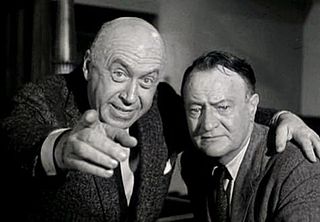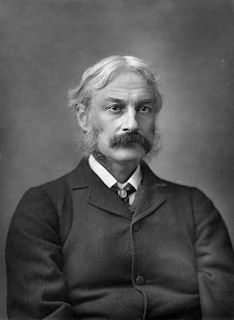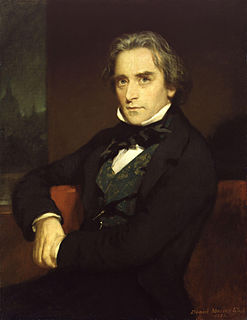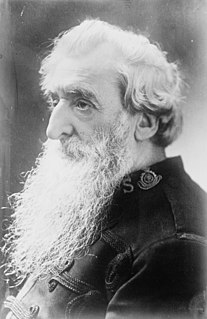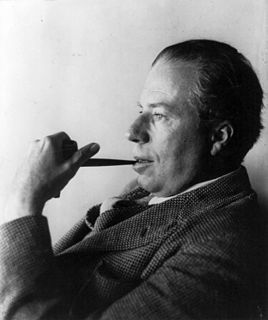A Quote by John D. Voelker
There is no subsititue for fishing sense, and if a man doesn't have it, verily, he may cast like an angel and still use his creel largely to transport sandwiches and beer
Related Quotes
Beer drinkers have been duped by mass marketing into the belief that it makes sense to drink only one brand of beer. In truth, brand loyalty in beer makes no more sense than 'vegetable loyalty' in food. Can you imagine it? “No thanks, I'll pass on the mashed potatoes, carrots, bread and roast beef. Me, I'm strictly a broccoli man.'
We rest; a dream has power to poison sleep. We rise; one wand'ring thought pollutes the day. We feel, conceive, or reason; laugh or weep, Embrace fond woe, or cast our cares away; It is the same: for, be it joy or sorrow, The path of its departure still is free. Man's yesterday may ne'er be like his morrow; Nought may endure but Mutability!
We have to recognise, that the gin-palace, like many other evils, although as poisonous, is still a natural outgrowth of our social conditions. The tap-room in many cases is the poor man's only parlour. Many a man takes to beer, not from the love of beer, but from a natural craving for the light, warmth, company, and comfort which is thrown in along with the beer, and which he cannot get excepting by buying beer. Reformers will never get rid of the drink shop until they can outbid it in the subsidiary attractions which it offers to its customers.
Man was destined for society. His morality therefore was to be formed to this object. He was endowed with a sense of right and wrong merely relative to this. This sense is as much a part of his nature as the sense of hearing, seeing, feeling; it is the true foundation of morality... The moral sense, or conscience, is as much a part of man as his leg or arm. It is given to all human beings in a stronger or weaker degree, as force of members is given them in a greater or less degree. It may be strengthened by exercise, as may any particular limb of the body.
So long as men desire to live together, no man may initiate the use of physical force against others. . . . When a man attempts to deal with me by force, I answer him by force. It is only as retaliation that force may be used and only against the man who starts its use. No, I do not share his evil or sink to his concept of morality: I merely grant him his choice, destruction, the only destruction he had the right to choose: his own.
No sane person, I hope, would accuse me of saying that every Distributist must drink beer; especially if he could brew his own cider or found claret better for his health. But I do most emphatically scorn and scout the vulgar refinement that regards beer as something unseemly and humiliating. And I would shout the name of beer a hundred times a day, to shock all the snobs who have so shameful a sense of shame.
In the latter sense, a man has a property in his opinions and the free communication of them. He has a property of peculiar value in his religious opinions, and in the profession and practice dictated by them. He has an equal property in the free use of his faculties and free choice of the objects on which to employ them. In a word, as a man is said to have a right to his property, he may be equally said to have a property in his rights.
A man has a right to use a saw, an axe, a plane, separately; may he not combine their uses on the same piece of wood? He has a right to use his knife to cut his meat, a fork to hold it; may a patentee take from him the right to combine their use on the same subject? Such a law, instead of enlarging our conveniences, as was intended, would most fearfully abridge them, and crowd us by monopolies out of the use of the things we have.
